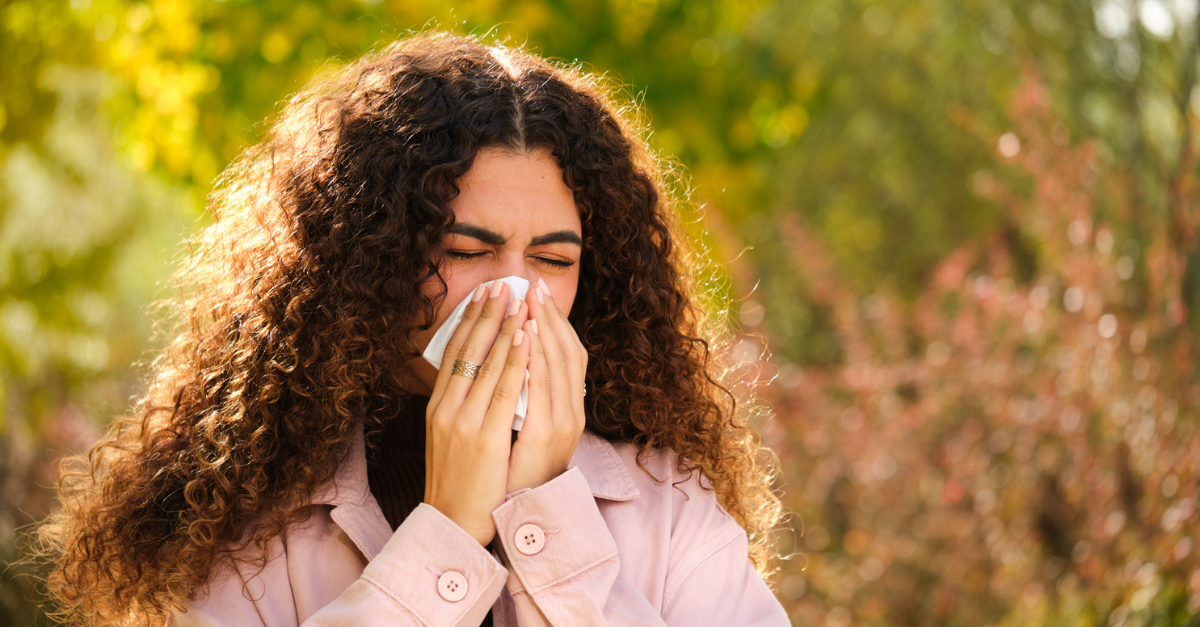When we think of the fall season in Georgia, cooler temperatures, a change of foliage colors, and football may come to mind. But if your runny nose and watery eyes seem to start before autumn’s official arrival, you’re not alone. Although it’s often associated with the change of seasons, fall allergy symptoms can actually begin as early as August in Georgia. Here’s everything you need to know about fighting allergies off through the coming season.
Common Triggers for Fall Allergies in Georgia
According to the American College of Allergy, Asthma, & Immunology (ACAAI), ragweed is the most common culprit behind fall allergies. Known for its high pollen production and allergenic potency, ragweed can be found across most of the U.S., but it’s especially prevalent in the East and Midwest. Ragweed can begin pollinating as early as July, releasing pollen into November. So, while ragweed pollen levels tend to be highest in mid-September, it’s certainly possible for them to start causing allergy symptoms in the late summer.
In addition to ragweed, there are other weed plants that produce pollen and are linked to fall allergies, including:
- Cocklebur
- Burning bush
- Lamb’s quarter
- Pigweed
- Mugwort
- Russian thistle
- Tumbleweed
- Sagebrush
In addition to pollen, mold is another common irritant for fall allergy sufferers. Outdoor mold levels tent to be higher in the late spring through early fall when the weather is warm and moist. In southern climates, mold spores are present year-round. And as leaves begin to fall, they can compost, keeping mold spores around late into the fall season. Be aware that mold can also grow in damp areas indoors. It is important to identify mold problem areas in your home or workplace and address the issues. Fortunately, there are many steps you can take to mitigate fall allergy symptoms.
Fall Allergy Symptoms & How to Treat Them
The collection of symptoms caused by seasonal allergy triggers is often referred to as “hay fever.” The clinical term for the condition is “seasonal allergic rhinitis,” which is believed to affect 15% to 30% of the population. Seasonal allergic rhinitis develops when the body’s immune system recognizes and overreacts to something in the environment, usually airborne mold spores or pollens from trees, grass, and weeds.
Common fall allergy symptoms include:
- Sneezing
- Congestion
- Coughing
- Itchy eyes, throat, and nose
- Postnasal drip
- Fatigue
If your symptoms are mild, simple lifestyle adjustments might provide relief. For example, our physicians recommend keeping your windows closed on days when the pollen count is projected to be high. You can follow the daily pollen and mold activity for the Atlanta area. Change your clothes when coming in from the outside and shower before going to bed as pollen can settle in your hair. More tips for surviving fall allergy season.
While over-the-counter medications for allergy symptoms may work for some, the most effective way to address seasonal allergic rhinitis is by visiting an allergy specialist. Our team can identify your precise allergy triggers and set up a personalized treatment plan to bring you lasting relief.
Treatment plans may include:
- Intranasal corticosteroids and medications including oral tablets, liquid meds, nasal sprays, and eye drops. But be aware that many medications should be started in advance of symptom onset for best results. Be sure to discuss side-effects with your provider.
- If recommended, begin allergy immunotherapy, shots or drops, to start desensitizing your body to bothersome allergens that are causing your symptoms. It’s a long-term, proven therapy to successfully treat symptoms related to mold and pollen allergies.
If you’re ready to begin pursuing relief from seasonal or year-round allergies, turn to Atlanta Allergy & Asthma. Request an appointment online or by calling (770) 953-3331.

